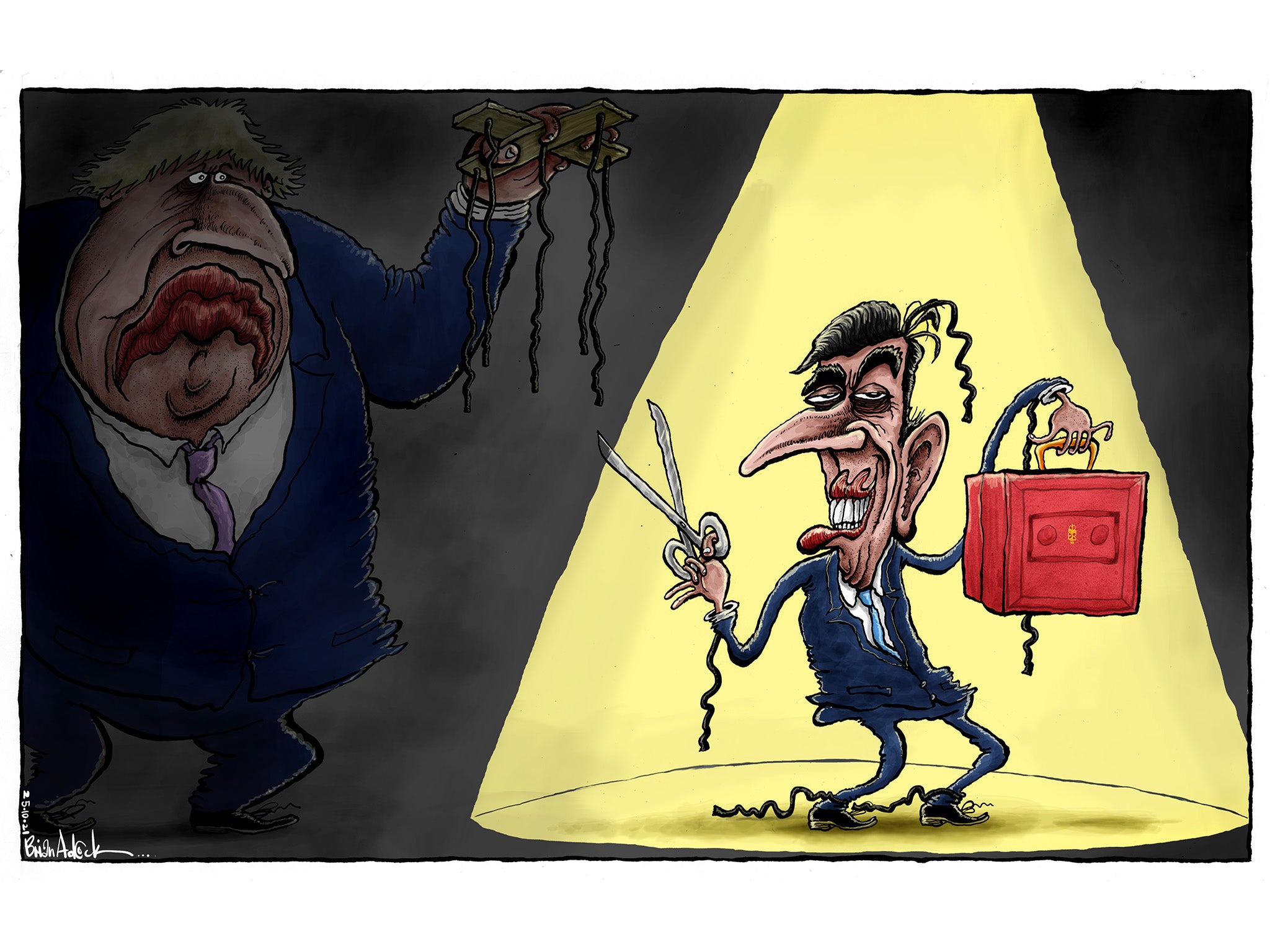Rishi Sunak’s skills as a politician were on full show in his interview on the BBC with Andrew Marr on Sunday. The chancellor wanted to shift the debate about the role of the government from fire-fighting to building, from the emergency actions to counter the damage caused by the pandemic to laying the foundations not only for a sustained economic recovery, but for building a more balanced society in the longer term.
On Wednesday he will have in his Budget, what is in effect his first opportunity to frame public economic policy for that longer term. It is true that the pandemic is far from over and there are real doubts as to how secure the recovery will be in the face of the fiscal tightening he has already announced. There will undoubtedly be some further damage to the economy from the current upsurge in Covid cases, and it may well be that the government will need to move to a plan B, reintroducing some curbs on movement.
There are further clouds ahead. At some stage in the coming months it is likely that the Bank of England will start to increase interest rates, as inflation is projected to increase to at least 4 per cent, double the target level. But much of the ground that was lost last year has been recovered, and the economy is now within a percentage point or so of the size it was when the pandemic struck. That progress is in part the result of the Treasury’s furlough scheme, a clear success. But that has now come to an end, and it is quite understandable that the chancellor should now seek to look further ahead.
The theme of his interview was that the government would invest for the future. He spoke of “strong investment in public services, driving economic growth by investing in infrastructure, innovation and skills, giving businesses confidence and then supporting working families”.
Those are fine objectives. Few would quarrel with that. Few would quarrel, too, with the need to shift the focus from what will undoubtedly be a difficult winter to a hopefully brighter spring and summer next year. But Rishi Sunak will be judged by his actions, not by his words. The core challenge for this government is about delivery and competence, not about vision – a point that applies very much to the prime minister as well as the chancellor.
Take those points noted in the interview, starting with public services. It is questionable whether spending by the government on services can make up for damage done by the squeeze on spending right through the past decade. The government is indeed now directing more funding into infrastructure, but it is getting good value for taxpayers’ money, and is that the right infrastructure? Is the government giving confidence to business? That is not, to judge from what business leaders say, very evident. Tony Danker, the director-general of the CBI, said earlier this month that businesses had been “infuriated by the tone” of the government. And as for “supporting working families”, next spring there is the increase in national insurance contributions – paid of course by working families. It is those families that are increasing their support of the government’s finances, not the other way round.
The chancellor could argue that he was not responsible for the policy of austerity, that infrastructure has a long lead time, with the contentious HS2 project inherited from Tony Blair’s government, that the CBI has long been hostile to governments of all shades, and that an increase in national insurance was essential to repair the public finances. But the harsh fact remains that there is a chasm between his objectives and what is happening in the real world.
It is implicit in what Rishi Sunak told Andrew Marr that the government will have a bigger role in shaping the direction of both the economy and society in the coming years than it has in the past. Maybe it will not be a move to big government, but it will certainly be towards bigger government. We will learn more on Wednesday about those plans. But if government is to do more, it must perform better than it has in the past. If it is to spend more, it must spend more wisely. Vision is fine, but it will be delivery that matters.



Join our commenting forum
Join thought-provoking conversations, follow other Independent readers and see their replies
Comments